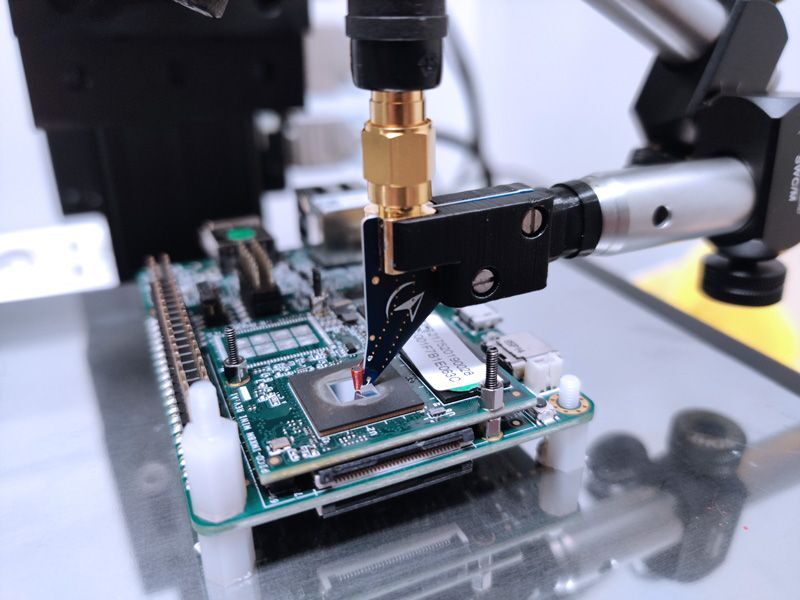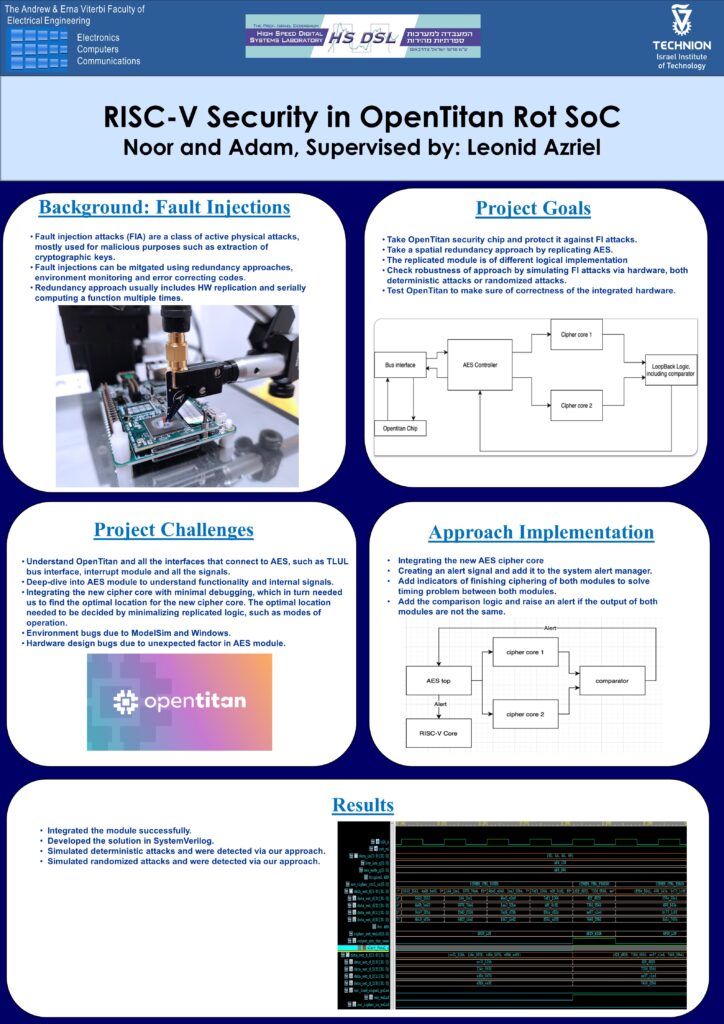This project mitigates Fault Injection (FI) attacks on system-on-chip (SoC) modules by introducing redundancy in the Advanced Encryption Standard (AES) module. By statistically verifying that simultaneous successful attacks on both redundant modules are improbable, it uses this comparison approach to detect and neutralize FI attacks. The results show the effectiveness of this redundancy approach in bolstering hardware security.

Fault Injection (FI) attacks pose a significant threat to hardware systems today. This project addresses transient FI attacks targeting system-on-chip (SoC) modules. The primary objective is to establish redundancy for a specific IP module, specifically AES, and verify if the two duplicate modules generate identical encryption/decryption outputs.
Through statistical analysis, the probability of an attack affecting both modules while still producing matching results is exceptionally low. This allows us to assume that an attacker cannot successfully compromise both modules and achieve consistent output. Therefore, by comparing the results of the vbased solution, we aim to enhance the security of hardware systems by mitigating the impact of FI attacks on critical modules. The results of this project demonstrate the effectiveness of the redundancy approach in achieving robust FI protection for the AES module and offer insights for further advancements in hardware security.


